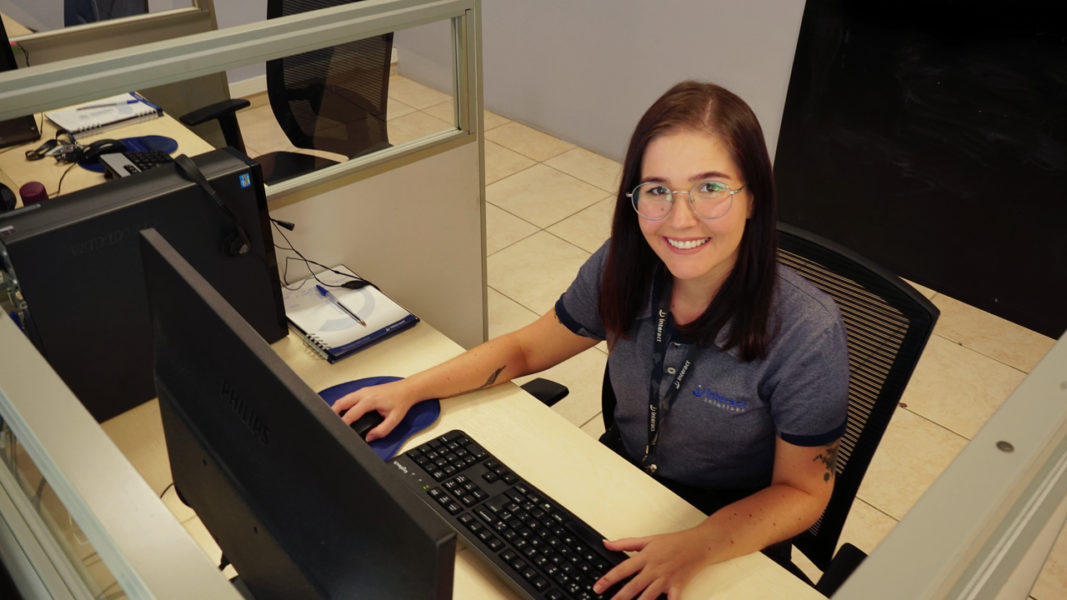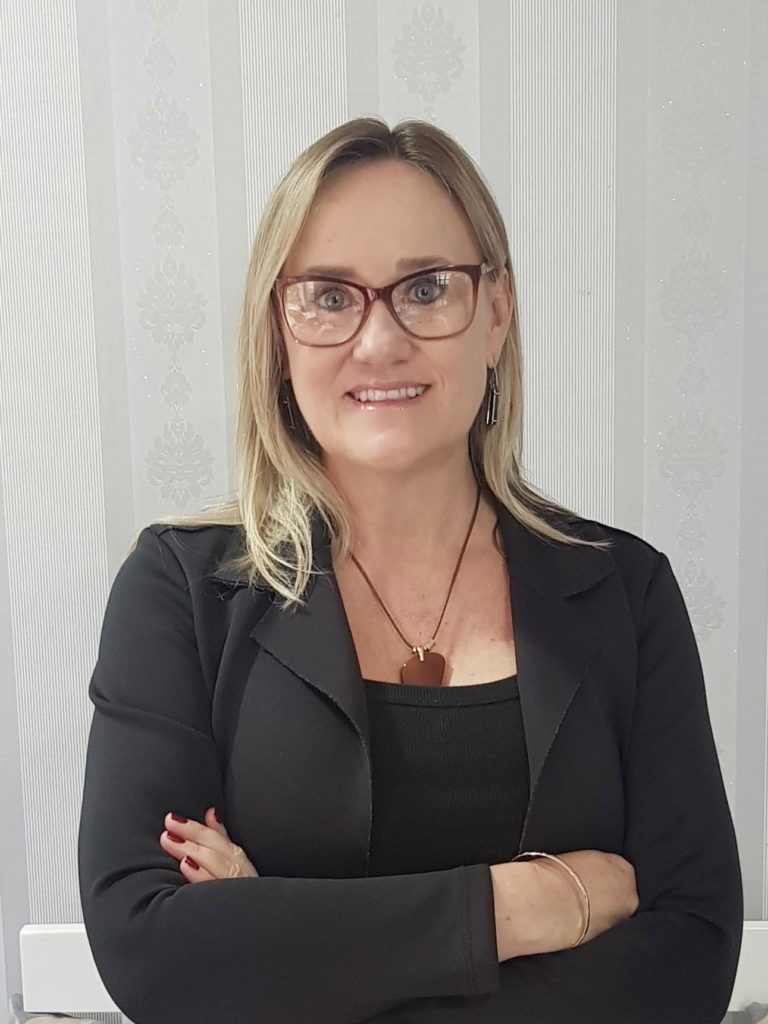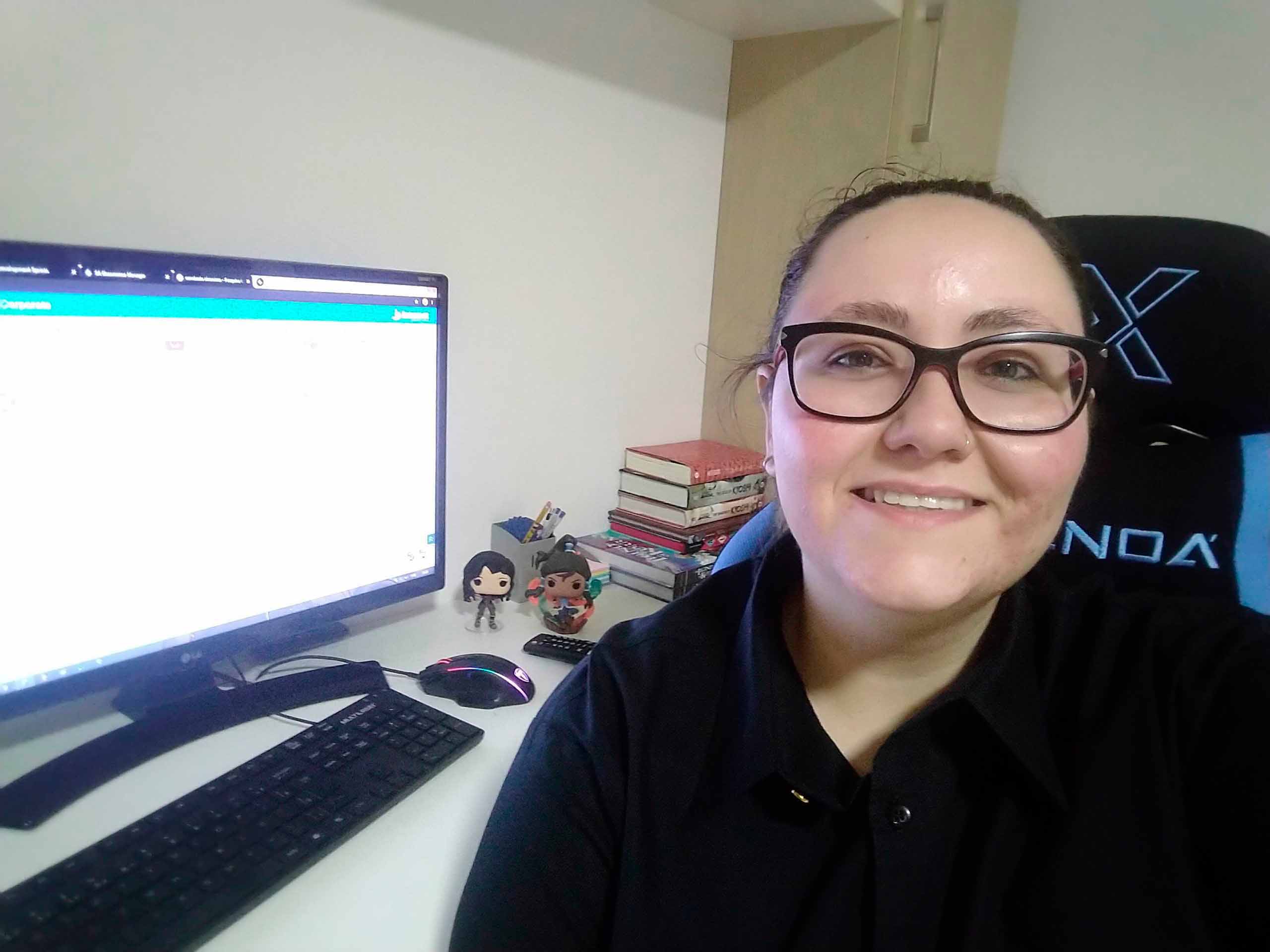
The path of some women to their professions within the field of Information Technology (IT) generally takes more turns and corners than what usually happens to men. According to Maria Claudete Schorr * (51), a professor at the University of Vale do Taquari (Univates), this market, which is increasingly on the rise, carries with it a strong cultural background, which leads girls to look for other options before they reach IT. Even so, when they finally arrive, they empower themselves and conquer many spaces.
For Camila Sbrussi (30), Customer Support Analyst at Interact, the search for a profession that brought her satisfaction went through two other areas before enrolling in the Software Engineering degree. “It took me a while to discover that the technology area was where I was going to meet. After two courses, one technician in Food and another technician in Administration, I realized that I, in fact, had another vocation ”, she recalls.
From the same company, the story of Interact’s Product Quality Analyst, Natállia Maria Petry (28), is repeated. “Before entering the IT area, I was already graduated in Letters – Spanish Language, but I was without great prospects. When I decided that it would be best to seek training in another profession, IT was the one that most caught my attention due to the grandeur of the job market ”, she reveals. It was only during her Computer Technician course that the professional learned more about programming and decided, then, that she had found her area of expertise.
Topics in this article:
Rising female market
Women at the beginning of IT in Brazil
Reconquest of space
Training and opportunities
Women in search of solutions
Professional tip
Rising female market

Maria Claudete Schorr is an IT professor at the University of Vale do Taquari
According to a survey carried out by Univates on the presence of women in IT courses, there is a timid – but constant – growth in female demand for undergraduate courses such as Systems Analysis and Development (EAD), Computer Engineering, Computer Engineering Software, Information Technology Management (EAD) and Computer Networks. In 2015, the female gender represented 6.27% of students and, in 2021, this percentage rose to 10.04%.
From the perspective of Professor Maria Claudete, the low demand of women for IT courses may be related to cultural factors about how children and adolescents are encouraged as to their tastes and interests, which are still very much divided by gender during childhood. “While boys are still encouraged to use and learn about technology more deeply, girls continue to be more focused on other interests, such as fashion, architecture, photography, environmental and social issues, among others,” she explains.
Women at the beginning of IT in Brazil
Even today the reality of women as a minority in the area, the history of the female presence in the world of Information Technology may surprise the unsuspecting. Anyone who thinks that software programming has always been a predominantly male industry, would be impressed by a quick search of the records of the first Brazilian classes in Computer Science. One example is from the Institute of Mathematics and Statistics of São Paulo, whose first class of the course, in 1974, was composed of no less than 70% women.
Over the years, the high female demand for technology has dropped as soon as personal computers appeared. This is because until then, the (huge) machines studied, manipulated and designed by women had their functions related to the position of secretary, since they “only” calculated and organized data and documents.
According to a 2018 article in the Jornal da USP, the computers launched by Apple and IBM for mass sale stopped being just work machines and became more of a source of entertainment. Electronic games – an activity considered, at the time, a pastime almost exclusively for men and boys – returned the male interest in the area, which ended up dominated by them.
Confirming this logic, the National Household Sample Survey (PNAD) revealed that of the more than 580 thousand IT professionals working in Brazil, only 20% are women. According to the survey, carried out in 2020, the low female indexes are repeated all over the world.
Reconquest of space
Despite the abrupt drop in the presence of women in computer science, this index is gradually reversing itself. An example of this great female vocation
for IT-related areas is Interact Solutions, a developer of Suite SA Strategic Adviser, a software with integrated solutions for corporate management. Located in Lajeado, in the interior of Rio Grande do Sul, the company has 36% of women in its team of employees. In the areas of leadership, the positions of coordinators, supervisors and managers are 80% occupied by women.
For Maria Claudete, the expressive data denotes the great capacity of women to not only be ahead, but also to lead projects in the IT area. “They have skills in all areas and this can justify the increase in the number of women in the management of many companies, whether they are in IT or not”, she points out.
In the teacher’s opinion, gender never determines the capacity or ability to play any role. “Positions as a developer, analyst, tester, project manager and software architect, for example, are available in the job market and in large quantities, demonstrating that IT students have opportunities and advantages due to the numerous offers”, she says.
Increasingly on demand, technology development companies increased the number of hires exponentially in 2020. According to a survey by Catho , only in São Paulo did the technology sector register a 671% growth in vacancies related to the sector. “There is a demand for employability, but a lack of personnel, whether male or female,” analyzes Maria Claudete.
Training and opportunities at the door
When Natállia decided that IT would be her new area of work, she researched the courses available in the region where she lives and was impressed with the number of graduations in the field. “I didn’t know exactly which way to go and I found the graduations to be very long. I wanted something that didn’t take that long. For this reason, I went for shorter courses at Univates and ended up starting the Computer Technician ”, she says.

Natállia Maria Petry has a degree in Literature and now serves as Interact’s Product Quality Analyst
For her, the experience of entering the IT course was shocking. “I was used to a certain balance in the number of men and women in my previous course,” she says. In most of the classes, she was the only woman in a room with 20 students.
Today for three and a half years working in the area, Natállia recalls hearing from a colleague who would not last a month in the course. “Due to this type of comment, I initially had a certain fear of what my insertion in the job market would be like, but fortunately, while I was still in the course, I had the opportunity to enter the market without major difficulties. At no point in the selection process did I have the feeling that being a woman could be being a disadvantage for my selection, quite possibly because the three people who interviewed me were also women ”, she declares.
Women in search of solutions
“I was always a bit of a mess. I saw any problem in front of me and was there researching until I found a solution. With that, many people in the company where I worked called me when they faced any problem with the computer ”, recalls Camila.
The natural talent for dealing with technology led her colleague from the old company to provoke: “Why don’t you study“ these things ”on the computer? You like that, ”he says. “I believe that was one of the questions that changed my life.”
In the first semester of Software Engineering, Camila won a job in the area as a support assistant. “This is a great advantage in studying in this area. With the growing market, IT always has vacancies available. And being able to enter the study area right away makes us face to face with the professional reality and so we can soon decide if we are on the right path ”, she indicates.
Coincidentally in March, the date on which International Women’s Day is celebrated, Camila celebrates 4 years of experience in the company where she works, Interact. “I joined as an assistant and today I am an analyst. I started the development of tools to support support, and so I am evolving more and more my knowledge in the development area ”, celebrates.
Professional tip
In Natállia’s opinion, to enter the IT market it is necessary to focus completely on personal development in the area. “You have to believe in your potential to conquer your space, without giving importance to comments that may arise. Women have a lot to add in the IT area”, she says

At Interact, the positions of coordinators, supervisors and managers are 80% held by women
As for her company colleague, Camila, any girl or woman who wants to form a career in Information Technology can start by reading the book “Courageous yes, perfect no!”, By lawyer Reshma Suajani. The author is the founder of the Girls Who Code non-governmental organization, which works to insert more girls into technology careers. “In the book, she recounts how she perceived the low search for women in the sectors of science, technology, engineering and mathematics and relates this to the fact that many women limit themselves to only the things they do very well and do not realize the great potential that each one owns”, sums it up.

In his book, Reshma says: “Programming is an endless process of trial and error, in which sometimes a mere semicolon makes all the difference between success and failure. Programs crash, and sometimes require countless attempts before reaching that magical moment in which what you are trying to create comes to life. To get there, you have to persevere and accept imperfection.”
And Camila continues:
“The tip is: allow yourself to be imperfect! Realize that we were created not to make mistakes, to sit correctly, to walk in line and, to attend to that, we follow the path that we are sure we will not fail at any time. I believe that above all we have to remember that we are human and we make mistakes. Take chances in areas that bring you uncertainty even if they tell you that it will not work, that it is not for you. If you like it, if you feel that this is what will make you feel happy, let yourself know more about other professions that take you out of your comfort zone. Escape the pattern, be brave!”
* Maria Claudete Schorr is a professor at the University of Vale do Taquari (Univates). He has a degree in Computer Science from UNISC, specialization in Technologies in Education from PUC-Rio, Master in Teaching of Exact Sciences from UNIVATES and Doctorate in Informatics in Education from the Federal University of Rio Grande do Sul (UFRGS).



